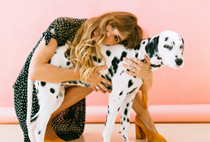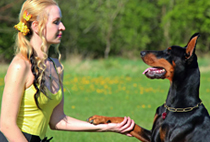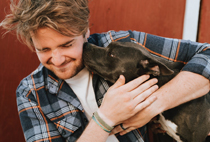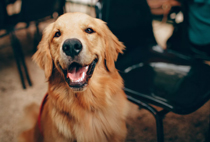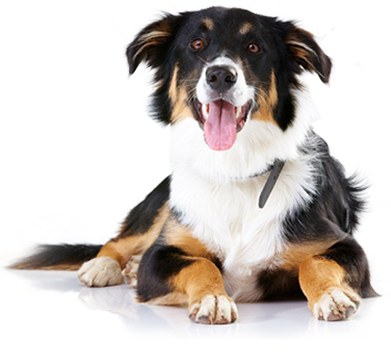5 Reasons Why Dogs Pee On Beds (and Cleaning Steps)

- June 9, 2022
- Posted by Admin
- Dogs, Cuddly Tails, News
At the end of the long and hectic day, your soft bed is your only comfort, but when you finally think of having a good nightís sleep, you find out that your dog peed on your bed. This behavior is annoying and frustrating, and might urge you to scold your dog, but if you truly want an end to it, you need to understand the deep-rooted causes.
These are the most probable reasons why dogs pee on beds:
#1 Excitement, Anxiety, Fear, or Stress
Depending upon health conditions and the surrounding environment, your dog might feel anxious, stressed or overly excited at times which results in inappropriate urination. Younger pups are more prone to excitement-based urination, but as they grow, this trait is generally dissolved. But if it doesnít, you might need to housetrain your dog with or without the help of an expert.
Sudden change in surroundings might also cause uneasiness and anxiety in your dog, and consequently, inappropriate urination. So, itís possible that after your dog is habitual of an environment heíll stop peeing on your bed.
#2 Poor Housetraining
Some pet parents might think their dog is fully housetrained and still find wet beds. This is because dogs can find their new favorite places for urinating and that might just be your cozy bed. If you think your dog lacks appropriate housetraining, itís time you work on yourself or with an instructor to help your dog learn that your bed isnít his urinating place.
#3 Marking Their Territory
Some dogs choose leaving their scent through urine as a method to mark their territory, and hence they pee on your bed. Also, your dog might want to assure you that you are safe in his area and that he is the boss, which is not true. You will need to teach your dog that youíre the boss and responsible for the safety and care of your dog and itís not the other way around. In short, you need to tell your dog that itís your territory and there is no need for him to mark it as his own.
#4 Urinary Tract, Diabetes or Kidney Related Issues
Urinary tract infections are the most common health-related issues that lead to inappropriate urination. If your dog keeps peeing on your bed irresistibly, you should consult a vet and complete a urinalysis of your dog to find out the underlying health conditions.
Kidney disease, tumor, diabetes, inflammation of the bladder, bladder stones, crystal in the bladder, and Cushingís disease are other issues that might cause uncontrollable urination in your dog. In any case, you should consult your vet and check each possibility to make sure you donít miss anything serious.
#5 Incontinence
Urinary incontinence will lead your dog to involuntarily release urine, most probably when heís asleep, but it can also happen when they are awake. Incontinence is most common in senior dogs, but inappropriate health conditions might cause incontinence in young pups as well. In female dogs, hormone-responsive incontinence is popular, unlike male dogs.
Steps to Clean Your Bed After Your Dog Pees On It:
1. Get rid of the bedding and throw it in the washing machine ASAP.
2. If your bed is still wet, blot the area with paper towels and make sure you DONíT rub the area because it will spread the disaster.
3. Spray a 50/50 water-vinegar solution or enzyme-based cleaner after youíve dried the area and let it sit for 5 minutes.
4. Blot again using paper towels and remove the moisture.
5. Sprinkle a generous layer of baking soda on the area and let it sit for a few hours (overnight is recommended) to absorb the moisture.
6. Use a vacuum to remove the baking soda.
7. If you still see some stains, repeat the steps again till your satisfaction.
In search of dog walking services Akron, dog boarding Pittsburgh, PA, dog walker Pittsburgh, or Tampa puppy day care? Well, end your search by downloading the Cuddlytails app and find trusted, skilled, and verified sitters there.
Visit www.cuddlytails.com or download the android or iOS app to easily find a dog sitter near me.
Thanks,
CuddlyTails team